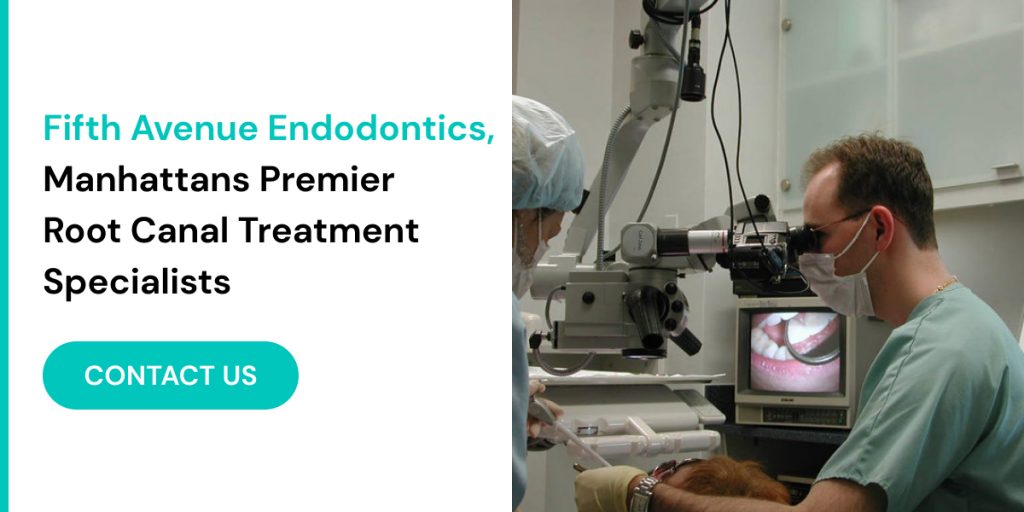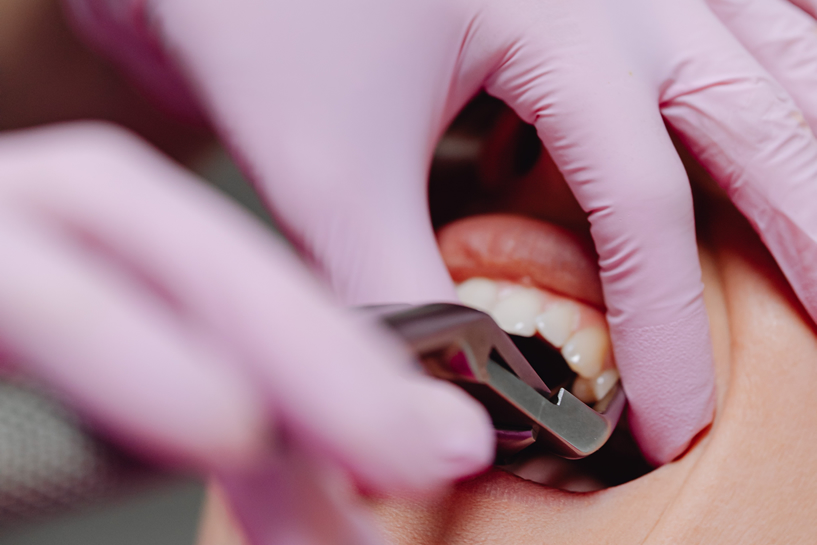When it comes to root canal (endodontic) treatment, there are many misconceptions swirling around, especially regarding whether or not patients experience pain. The American Association of Endodontists wants to set the record straight and provide you with accurate information. Before making any decisions about medical procedures, it’s crucial to gather as much information as possible about your options. Your dentist or endodontist can address many of your questions, and if you’re still unsure, seeking a second opinion is always a wise move.
Myth #1—Root canal treatment is painful.
Let’s set things straight—root canal treatment doesn’t cause pain, it actually relieves it.
Decades ago, the perception that root canals are painful became ingrained in our minds. However, thanks to modern technologies and advanced anesthetics, root canal treatment is now no more uncomfortable than getting a filling. In fact, a recent survey revealed that patients who have undergone root canal treatment are six times more likely to describe it as “painless” compared to those who haven’t had the procedure.
Most patients seek dental assistance when they’re plagued by a severe toothache, which is often caused by damaged tissues within the tooth. Root canal treatment removes this damaged tissue, effectively relieving the pain you’ve been enduring.
Myth #2—Root canal treatment causes illness.
The myth: While searching the Internet for information about root canals, you may come across websites claiming that teeth treated with root canals contribute to illness and disease within the body. This claim, however, is based on outdated and poorly designed research conducted nearly a century ago by Dr. Weston A. Price, a time when medical knowledge was far from what it is today.
In the 1920s, Dr. Price advocated for tooth extraction, one of the most traumatic dental procedures, instead of endodontic treatment. This led to an alarming phase of tooth extraction being used to treat systemic diseases and as a preventive measure against future illnesses.

The truth: There is absolutely no valid, scientific evidence linking root canal-treated teeth to diseases elsewhere in the body. Root canal treatment is a safe and effective procedure. When a severe infection in a tooth calls for endodontic treatment, the goal is to eliminate bacteria from the infected root canal, prevent reinfection, and save the natural tooth.
Bacteria have been a part of our mouths and teeth for countless years. However, the presence of bacteria doesn’t signify an “infection” nor pose a significant threat to our health. Bacteria exist in our mouths and teeth at all times, even in teeth that have never experienced a cavity or trauma. Research indicates that a healthy immune system deals with bacteria within minutes.
Tooth extraction, on the other hand, is a traumatic procedure that increases the chances of bacteria entering the bloodstream, whereas endodontic treatment confined to the root canal system causes significantly less trauma and lowers the chances and magnitude of bacteria entering the bloodstream.
There’s simply no substitute for your natural teeth, which should be preserved whenever possible. Root canal treatment, coupled with proper restoration, offers a cost-effective solution for infected teeth, often being more affordable than extraction and implant placement. In the majority of cases, endodontic treatment allows patients to keep their natural teeth for a lifetime.
But what about Dr. Price? This serves as a prime example of how the Internet can give new life to long-disproved theories. Surprisingly, the misinformation about root canals found online still stems from Dr. Price’s outdated research from a century ago. Even at the time of publication, Dr. Price’s research techniques were criticized, and by the early 1930s, well-designed studies using modern research methods had already discredited his findings. In 1951, the Journal of the American Dental Association reviewed the scientific literature and recommended a return to endodontic treatment for teeth with non-vital pulp, emphasizing that Dr. Price’s research lacked many crucial aspects of modern scientific inquiry.
As recently as 2013, a study published in JAMA Otolaryngology—Head & Neck Surgery found that patients who underwent multiple endodontic treatments had a 45 percent lower risk of cancer.
Myth #3—Extracting the tooth is a good alternative to root canal treatment.
The truth: Whenever possible, preserving your natural teeth is the best course of action.
Experience the confidence and reassurance of keeping your natural teeth for a lifetime. While an artificial tooth might limit your food choices, holding onto your own teeth allows you to enjoy the full range of nourishing foods that are essential for a well-balanced diet.
If you’re facing a recommendation for extraction, consider the alternative: root canal treatment. This cost-effective option not only saves you money compared to bridges or implants, but it also has an impressively high success rate. With proper restoration, root canal-treated teeth can last for years, even a lifetime.
Choosing a bridge or an implant is a lengthier and potentially more complex process. It may require additional procedures on nearby teeth and supporting tissues. Why go through all that when millions of patients worldwide are happily relying on their healthy, endodontically treated teeth? These natural teeth enable them to chew efficiently, maintain their beautiful smiles, and truly savor the joys of life.
Trust in the expertise of Fifth Avenue Endodontics who specialize in preserving your natural teeth with endodontic treatment in NYC. With their help, you can enjoy the benefits of a lifetime of healthy, functional, and aesthetically pleasing teeth.

